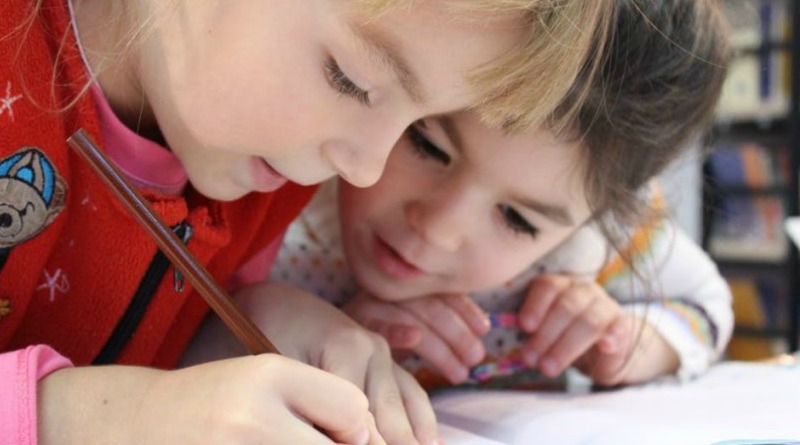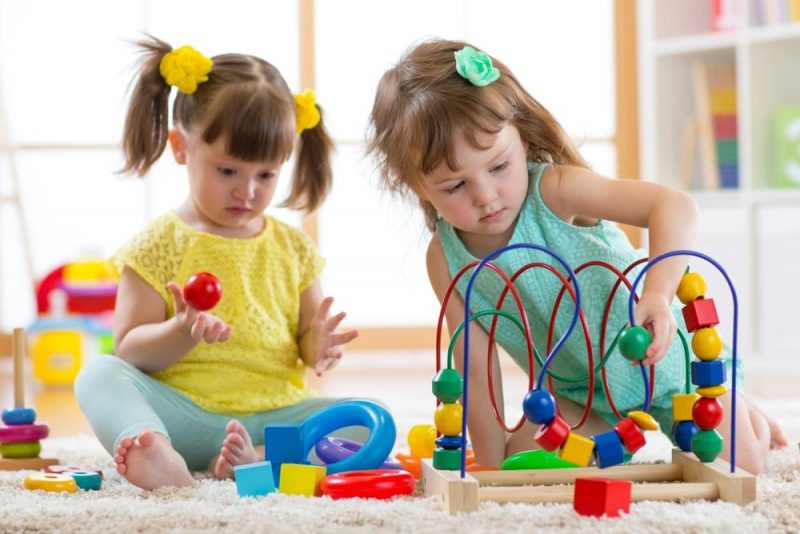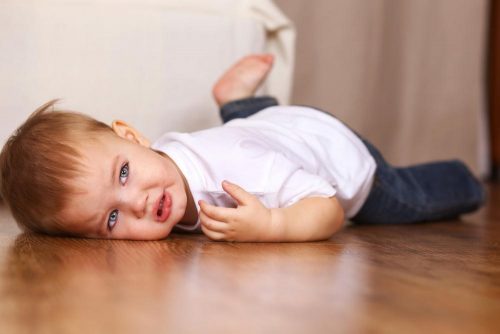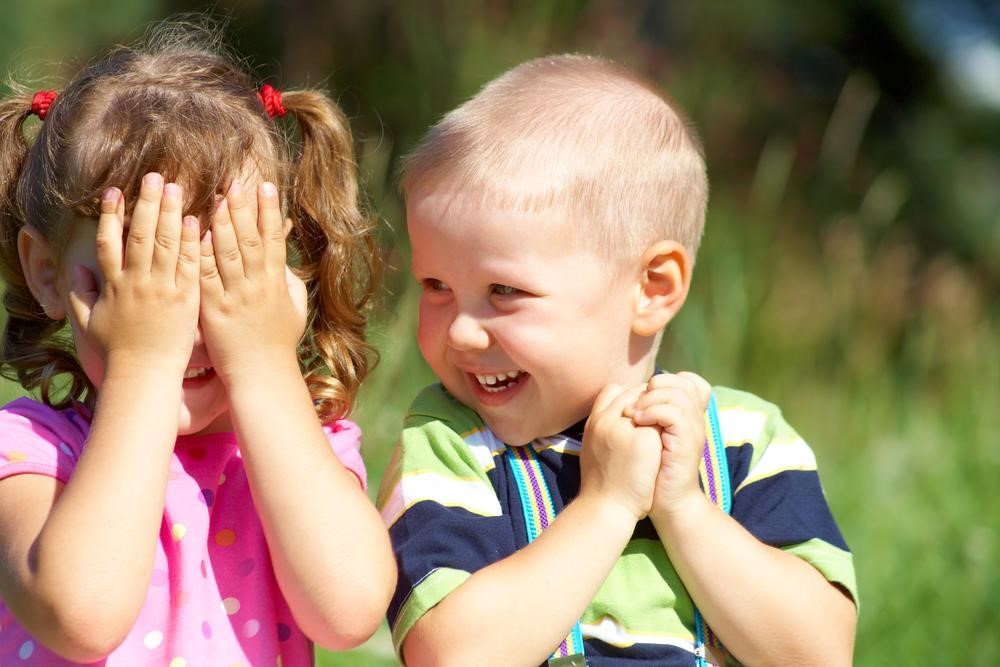Everything Your Toddler Should Know Before Starting Preschool
The start of preschool is a big milestone for parents and their toddlers! They’re ready to become more independent and prepare for their entrance into kindergarten, which can be exciting (and a little bit anxiety-provoking!) for both moms and dads. While it’s totally normal to be apprehensive, you’ll feel more relaxed if you know exactly what your little one should master before their first day of class. We break down the skills they should have to succeed, so you can begin prepping them ahead of time.
Essential Skill #1: Potty Training
Before you enroll, know that many preschools will require that your child knows how to use the bathroom. Double-check the academy’s policy and then decide whether your kid is truly ready. Some toddlers know how to use the toilet on their own by two and a half years of age, while others will take much longer to master their craft. Before you compare your family to others or start to panic, realize that most teachers are ready and willing to escort children to the bathroom and make sure they’re doing okay.
Ensure your toddler is comfortable in class by…
- Considering a daycare or school with flexible rules—If you’re unsure of your child’s readiness, some multi-age facilities will allow you to register for a lower-level preschool class. Daycares without the official preschool stamp are also usually more accommodating. If you go the daycare route, find a place with a heavy emphasis on education. This way, your child will be learning about their numbers, shapes and colors throughout the day, but will still align with their classmates’ developmental level.
- Start training as early as possible—If you have a few months until preschool begins, now is the time to get more focused on your training tactics. Be patient, but keep at it. Head to the bathroom multiple times per day, even if you are out in public. Use positive reinforcement each time they go number 1, number 2 or wipe. Some parents like to give their child stickers or put pennies in a piggy bank each time a session is successful. Once they’re going like a champ, you can let them redeem their stickers for a prize or pick out a gift with their saved up money.
- Packing extra clothes—Most schools will require you to pack extra clothes in case of an accident. Always keep an additional outfit and pair of training pants in their backpack or cubby so you’ll have peace of mind that they’ll be clean and dry in the event of a mishap.
Essential Skill #2: Emotional Readiness
Toddlers often experience strong emotions but may not know what to do with them. Common issues during the post-infancy years include separation anxiety, a lack of coping skills and difficulty cooperating with classmates and teachers. While fear and sadness on the first day of preschool is normal, you’ll want to engage in an honest evaluation now to determine whether excess clinginess, anger or bad behaviors like hitting will impact them in the classroom.
Help your child become emotionally ready by…
- Seeing a therapist if necessary—Most parents who have a child with emotional challenges will know something is off. If there is any reason to suspect your son or daughter needs assistance with giving words to feelings or in dealing with behavioral triggers, sign them up for a child counselor before you register for preschool. Allow the therapist to be your ally in determining if their hostility or sadness is normal or abnormal. If there is a cause for concern, they can help you design a plan so you feel more prepared and empowered.
- Listening and communicating—Open up a dialogue. When your kid gets frustrated, ask them how and what they are feeling, and what they think caused it. An emotionally aware child is more likely to be able to handle bouts of worry or embarrassment in class. Don’t forget to listen, too. Give your child one-on-one attention, engage in active listening and let them know you are there for them.
- Talking to the pediatrician—Some reasons for emotional issues can be addressed in the doctor’s office. Don’t be afraid to talk about preschool readiness at your little one’s next checkup. In most cases, they’ll provide you with sleep, potty training and nutrition tips and tell you what they’re observing about their readiness.
Essential Skill #3: Social Experience
If you have an only child or haven’t spent much time on the playground lately, start scheduling social activities now. Most preschool classrooms have between 10-25 other children in them, which means your kid will have to play nice, take turns and share. Their ability to relate socially will continue to be an essential skill in kindergarten and beyond.
Increase social aptitude by…
- Having regular playdates—Does your son or daughter have cousins or neighbors to play with? Start inviting them over on the weekends. Avoid passive activities like watching movies or television. Instead, take them out in the yard and allow them to blow bubbles or play with sidewalk chalk. Supervise make-believe and toy sessions so you can see how your child is responding.
- Going to the playground—The playground is an excellent place to meet new kids. Making acquaintances and handling different personalities is great practice for spending each day in a classroom full of children. Once you get in the car, start a casual conversation about what happened. Compliment them about their ability to get along with others and always take the time to address their questions.
- Watching shows about social skills—Reinforce what they’re learning by letting them watch skill-building television shows during downtime. Programs like Daniel the Tiger, Octonauts and Timmy Time are great tools for explaining the importance of sharing and empathy. If you’re not so into TV, you can also entertain and teach them with books or tablet games.
Building the Skills Essential for Preschool and Life
In addition to these important capabilities, toddlers who are ready for preschool should also be able to follow basic directions. Regularly ask your child if they can pick up their sippy cup or place their favorite toy in an organizing bin. A spirit of active learning, along with a willingness to collaborate with preschool staff, will ensure your child thrives in the classroom. While it can be hard work to master essential skills like potty training and emotional development, know that the time you put in will greatly benefit your little one in the future.








My daughters are 3 and 5 years old. My 3 year old daughter is excited to start preschool and I think will adjust very well. My 5 year old cried for the first 3 weeks of preschool, and I was prepared for that social adjustment. She also needed physical therapy and occuptional therapy. She is now thriving in kindergarten. My husband and I stayed on top of giving the support she needed, and now it is so amazing to see her do so well in school, and enjoy it.
Pingback: 5 Amazing Tech Jobs to Inspire Your Young Techie - Night Helper